|
Nine of Stephen's BBC Radio plays are now available online.
0 Comments
There’s a new play on Radio 3, January 7th 2024 ‘Bacon in Moscow.’ I thought I’d more or less retired from playwriting but the subject – Francis Bacon, the painter – proved irresistible. There’s an article I put together (with pictures) on the BBC Website for that week. The play itself will probably be on BBC Sounds for a period. Otherwise I’ve been occupied trying to write fiction, enjoying myself mostly – though frustrated at times. I (kind of) know how to write a play, but am on a (very) slow learning curve with novel writing. I’ve also realised I’m not in it for the kudos (or any money). Be good to get it satisfactorily finished before I pack in, though. I’m encouraged by this from Christopher Isherwood: ‘Writing doesn’t matter that much. What matters is the experience and understanding of life. Sometimes you get that understanding by actually going through the process of writing. One might become very wise even in the process of writing something quite bad…’
For the last two years Stephen has been trying, quite often failing, to write a novel - or at least finish one. There are several, at various stages written over the last fifteen or so years. One seems quite urgent (to him) and is going (reasonably) well. Certainly keeping him occupied and absorbed. Its called No Good Deed.
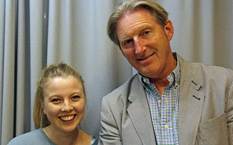 'Lying Low', with Adrian Dunbar and Charlotte Buckley, about a mysterious visit the writer Samuel Beckett paid to Folkestone, goes out on Radio 4 at 2.15pm on 22 September 2017. See The Tightrope. 'Land's End to John O'Groats' went out the week of September 19th on Radio 4. It starred Ed Hogg and Jeff Rawle. See 'Agricultural Labourers, Vegetarian Long Distance Walkers and obscure South Coast Clergymen' further down in this section.
'Pick of the Week' (extracting the most vulgar section) described it as 'a gem'. I've just finished my first - longish stint - of novel writing. It takes up from material my old friend nina Bawden left, on her death. See Nina. It's called 'The House Sitter'. See 'The House sitter'. And also see Sonnet 18 below.
Stephen is interviewed on this podcast from the Royal Literary Fund on 'survives changing fashions in TV drama (while at heart staying the same)'. It begins at 17 mins. Listen here.
‘A Severed Head’, an adaptation of the Iris Murdoch’s novel with Julian Rhind-Tutt in the lead, went out on Radio 4 the week of August 24th, 2015.
‘The Author of Himself’ – about the young John Osborne, with Sam Barnett and Jonathan Coy as George Devine – was repeated on 15 September. 2015. I recently gave a lecture on 'being a writer' as part of my stint here as Writer in Residence at St Cuthbert's Society, Durham. You can read it below the line [follow 'Read More']
Good Friday 2015
Agricultural Labourers, Vegetarian Long Distance Walkers and obscure South Coast Clergymen I've written elsewhere on this site, among the Essays, of how I got my mojo working again (by which I mean the ability to write), concentrating on biographical subjects. There has been a worrying development of this. Having dramatised the early adulthood of the agricultural worker and author Fred Kitchen's life (see earlier in this News Section) I was commissioned by Radio 4 to complete the job and fill in the later years, 1940-69: 30 years of a man's life in 5 x15 minute episodes. It goes out on the week of April 13th, through the week in the post 'Woman's Hour' and post 'Front Row' slot. (follow 'read more' link) 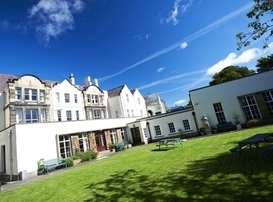 St Cuthbert's Society, Durham St Cuthbert's Society, Durham 25 February 2015 The Tightrope I’ve been in Durham for almost six weeks now, as Writer in Residence at St. Cuthbert’s Society – a college on what looks like a Georgian cobbled street, very close to the Cathedral. I have my own flat inside the building – I am the only person there at night, the students living (mainly) just over the road – and the dining room is two storeys down. I get free meals, but can’t pile it away like the 18 and 19 year olds, so usually take only one meal a day and make do the rest (like the old geezer I’m becoming), with cheese and an apple. Breakfasts are a joy, all laid out as in some very decent hotel. (follow 'read more') I can’t manage the bacon and sausages, except on Saturday when there’s a later brunch. Newspapers are provided, and – if the student ‘Guardian’ reader is around – I happily read the ‘Daily Telegraph’ or ‘Times’ instead. There are only six or seven of us at early breakfast and we have started to mutter to one another, cheerfully. It’s wonderful to be among students and it’s probably the most important part of my role here: to have someone among them who – as a friend put it – has lived out his passion, and isn’t ‘a suit.’ I would add, ‘Not a suit – or sensible.’ Maybe I will put them off the artist’s life. I’m certainly open about its pitfalls, and began an address the other week with Andre Gide’s advice to those who aspire to be artists and writers: ‘I open the door and show them the tightrope.’ A number of quite promising scripts have been sent to me. I comment and encourage where I can. There is a Writers’ Group. And I go along to evening lectures and various ‘do’s’ at the University, showing my face - as a kind of ambassador for the college, I suppose. The Principal here at St. Cuth’s is terrific at introductions, ‘You must meet so and so,’ including lately a Montaigne scholar. I wrote a play about Montaigne for Radio 3, which I want to return to – it’s a possible stage play - and we will have a good chat before I leave, in the Summer.
In short, it’s time out of mind, and – because I’m ahead of myself with radio plays – I’m working on what I wouldn’t be doing at home. Fiction. I have got one of the novels (mentioned earlier among these despatches) into shape and it looks promising. This whizzy computer tells me I last worked seriously on it in 2003. I have written 16 radio plays since then, so haven’t been malingering. Whether the book will work and then be saleable will have to wait for a bit. It’s certainly absorbing writing, and I heard Ishiguru talking this last weekend about the (very) long gestations of some of his novels. He keeps several on the back burner – all this sounds familiar and reassuring – but the great thing is that, at my time of life, success or failure as a novelist doesn’t matter. I’m following my nose. I have also knocked out a synopsis for a new radio play, called ‘Beckett takes a Break.’ Just before I came up here I picked up a rather beautiful edition of Samuel Beckett’s letters from the middle part of his career and noticed that he was in Folkestone (where I live) for a month back in the early Sixties. There was no other biographical information and ‘following my nose’ I got hold of the big authoritative biography by Knowlson, which I read with enjoyment over Christmas. Beckett was in Folkestone because he was getting married. His long term lover and wife to be, Suzanne, was French, he Irish, and he had been advised that they had best get married in England – to safeguard her financial future with the earnings from ‘Godot’. He needed to establish a two weeks’ residency so checked in at the Hotel Bristol (now demolished), not at the more upmarket Grand or Metropole, under a false name: he had a horror of publicity. The idea for the play grew from there. In the Eighties, when I worked at the Royal Court, not then done up and with pokey back corridors, I passed someone backstage and realised it was the great man, Beckett. He had been in that day to see the Artistic Director. Twenty years before, when I was at Cambridge, I looked out of my window and saw what was surely E.M. Forster, walking very slowly – he was in his eighties - over the Mathematical Bridge at my college, Queens’. I had the nous to pop out of my rooms and walk slowly past him. Years later, I wrote a play about him – it’s on the ‘Listen’ section of this website – called ‘A Dose of Fame.’ I wished I’d spoken to him, and realise now that he might have welcomed a chat with a fresh faced young man (we’ll put it no differently than that). Beckett, I suspect, might well have retreated. But I take this opportunity to apologise to both of them here for my writing about them on the basis of such brief acquaintance… Both wrote novels, of course. Both stopped writing novels – Forster famously for 45 years. And I’m sputtering on. The tightrope. 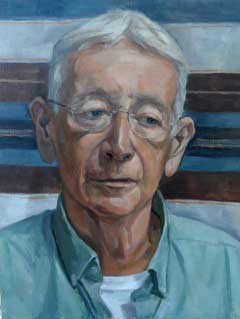 Stephen Wakelam by Annabel Cullen Stephen Wakelam by Annabel Cullen The painting, by Annabel Cullen (see Pentimento) Annabel's website As opposed to the drawing by Annabel below, most of this - and certainly the detail - was painted after my operation. I think you can tell and is a mark of her skill as a portraitist. It reflects how I was in September 2014 and how I felt. Thankfully, I am now a great deal better (November 2016) and got half way up Ireland's highest mountain recently.  'Why I write' is an audio series in which Royal Literary Fund Fellows explain in their own voices their motivations for writing. Here is Stephen's response to 'why I write' (this takes you to an external site and audio file). September 11th, 2014
Sonnet 18 I’ve just finished a play. No surprise there, then – except it’s my first uncommissioned play in over 30 years. While I was ill recently I hadn’t wanted to angle or accept any commissions. I wanted no pressure and, for a time, as I’ve written in the entry below, wondered if I was still capable of writing. I’d begun this play, now called ‘Sonnet 18’ (but for a long time ‘Bosie in Hove’) in the summer of 2012 and had written about fifteen minutes of material. I’d spotted, in a biography of Oscar Wilde by Hesketh Pearson that I’d come across, that the author had arrived in Hove to interview Bosie Douglas, Wilde’s ‘beautiful boy’, who was still alive, though ailing (he had a heart condition) at the very end of the Second World War. Rather than get down to the business in hand they had taken to arguing about the identity of the supposed dedicatee of Shakespeare’s Sonnets, ‘Mr. W.H.’. The interview had ended acrimoniously, though Hesketh Pearson had re-interviewed Bosie after bringing him a conciliatory gift of brandy and a dozen eggs. Bosie himself had died a few months later. I noted the details straight away in my notebook and, for some reason – unfathomable – knew I wanted to write those two late wartime encounters. I visited the flat itself in Hove and took pictures from outside. You wouldn’t have linked it with Oscar, dead for 40 years before the play begins, or Bosie, an aristocrat. So I had the start of a play. The next stage would have been to get it commissioned as, say, a radio two hander, but I couldn’t see that there would be any interest. Two guys get to arguing over Shakespeare? ‘So what else happens?’ And I didn’t know. That’s the fun of it. It wrote – or revealed - itself finally and the Shakespeare argument pays off emotionally in the second half of the play. I realised I was writing some of my recent experience into the 74 year old Bosie, who had had a heart attack. There is also a great deal of verbatim material, culled from a variety of sources. Michael Holroyd, Hesketh’s executor, gave me free rein. It’s as if I need first hand, extant, materials for a play to be written. They get my juices going in a way unfettered imagination doesn’t. I’ve written elsewhere in the Essays about my attempt at writing novels and my failure, so far, to complete one. The advantage of their lingering in boxes and cupboards is there is plenty of material there for when I’m ready to pick up one again. I’ve written, in effect, my own source material. Some urgency is needed, of course, and I have to surmount my latest hurdle to becoming a novelist. This is my gloom on entering, as this morning, Waterstone’s, and the sheer amount of novels, piled high, this Booker prize season. You quietly know that you haven’t the novelistic skill of Amis, Barnes, or (at his best) McEwan, and certainly not the descriptive ability of the great Hollinghurst and yet, and yet… (I had lunch with Alan Hollinghurst about ten years ago. Afterwards we went to look at the newly published paperback edition of my favourite novel of his (underrated) ‘The Spell’, displayed in Blackwell’s window on Charing Cross Road. He suggested we had a drink or coffee somewhere but I felt I’d done well, thus far, to talk ‘naturally’ to him – he is such a hero – and scuttled off. I’ve done this before. Once, at the races, a TV producer I know said, ‘Come and meet Lester (Piggott).’ Lester in the hospitality tent was too much for me). I remember asking Hollinghurst if the novel he was working on was third or first person, and he said ‘third’. It turned out to be the Booker winning ‘The Line of Beauty.’ I suppose, as a playwright, I’m used to concision, and to actors speaking my words. With plays you stand back and let the characters get on with it. With novels, there’s the question of the authorial voice – where’s it coming from? I do like the turn around of writing plays and the sociability that is the inevitable end of the process, with actors and the director. So we’ll keep fingers crossed for that happening with ‘Sonnet 18’. But I bet it takes a time… September 1st, 2014 Will Self, in yesterday’s ‘Observer’ howled, ‘How do you think it feels to dedicate your adult self to an art form, only to see the bloody thing dying before your eyes?’ I’ve written elsewhere (in the Essays) of the demise of the single play in television 25 years ago and its impact on writers who aren’t interested (except to subvert them) in genre or serial killers. Single plays and films don’t ‘build’ an audience. Apart from a couple of writers – Poliakoff, at the high end, and, for a time Denis Potter, the old staple of British Television under its various names ‘Armchair Theatre’, ‘Play for Today’, ‘Screen Two’ is long dead enough for the archivist.
So it was with some trepidation and interest that last Friday I went to the British Film Institute to look at – after a very long gap indeed - one of my own single films. I paid to go and see it, as presumably did the packed house in Screen 3 at 6pm. I’d sneaked into the BFI programme wearing borrowed robes, as part of the director, Moira Armstrong’s, season there. The film ‘Letting the Birds Go Free’ was an early piece in my writing life, an adaptation of a short story by Philip Oakes – and one of most sheerly enjoyable jobs I ever had. I remembered almost nothing about it apart from the fact that Moira had laid out the rehearsal room in South London as if we were rehearsing a stage or (early) television play. The action takes place entirely on a Derbyshire farm which must already have been scouted and measured up. Lionel Jeffries played the paterfamilias of the house, rather well, I thought, thirty years later. Back in 1983 Lionel, not that long after his success in directing ‘The Railway Children’, had bounded up to me after the read through, saying ‘Marvellous. Marvellous script.’ I have learnt to distrust actors so initially enthusiastic. Trouble follows. He then started altering his lines to such a degree that he got completely lost in a particular scene and asked to see me. We were on location by then. Moira, clever director, said, ‘Ignore him. Let him stew for a bit but type up your original scene on a fresh piece of typing paper.’ I did avoid Lionel until it was impossible to keep on pretending, and sat down with him to talk about his problems (which were, at least, the mark of actor who cares). ‘Give me an hour,’ I said, ‘I may be able to help,’ and returned with my freshly typewritten original scene. He looked at it: ‘Bloody marvellous,’ he said. The young Tom Wilkinson played the son, Carolyn Pickles, his sister, and Martin Stone, a newcomer, the interloper into this family’s life. Tom was very funny and teased Carolyn (all terrific for the parts they played). Good though Tom was I would never have predicted (bet he wouldn’t either) that he would become Hollywood, or that Martin, a star in the making, I thought, wouldn’t be. (I remember Sean Bean played a small part in a television play I wrote shortly after ‘Letting the Birds Go Free’ and my thinking him very shy. After he became ‘Hollywood’, I had a call from the woman who was writing his biography. I said to her, ‘He said very little to me when we were making “Punters”. I expect he didn’t think the part big enough.’ ‘No’, she said, ‘It was his first part on TV. He was terrified.’) I liked the Moira Armstrong film at the BFI all those years on. It was beautiful and satisfying (I was the adapter only, remember) and not a serial killer in sight. There was a bit of H.E. Bates’ ‘The Triple Echo’ and A.E. Coppard about it and I’m thrilled and still pleased to be associated with Moira – who e-mailed me out of the blue about three years ago. She’d listened one Saturday afternoon to my dramatisation of Edith Wharton’s affair with the journalist Morton Fullerton, ‘The Jinx Element’ and wanted to say how much she enjoyed it; ‘It’s what we used to do in television, she said. 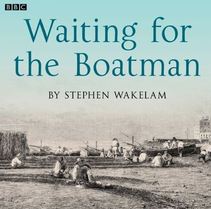 From BBC Blog Afternoon Play: ‘WAITING FOR THE BOATMAN’ Stephen Wakelam It was the director, Sasha Yevtushenko, who suggested to me - maybe three years ago - the idea for a play about the painter Caravaggio. The anniversary of his death was coming up: 1610. I’d read the Helen Langdon biography and had been knocked out by an exhibition of his late canvases in 2005 at the National Gallery, so didn’t need much encouragement. The life is dramatic enough - murder, scandal, feuds - but that’s all a bit ITV Primetime for me. For a long time, I couldn’t see how to do it. I spent a lot of time staring at reproductions of the paintings and, in doing so, started to recognise certain faces. These were Caravaggio’s friends and (it doesn’t need much imagining) lovers. There they are, looking out at us, sunburnt hands/necks, dirty feet and all. Sasha didn’t press, had maybe given me up, and the 2010 anniversary of the painter’s death had almost passed when the key finally turned in the lock – what I fancied writing was a play about Caravaggio in which the painter never appears. Needless to say, I worked it out carefully as a synopsis before trying this notion on the director. I suppose I was thinking about ‘The Third Man’ in which the Joseph Cotton character, a decent guy, comes out to Vienna to look up his friend, Harry Lime/Orson Welles and gets a shock. My central character would be not the great painter but his one time associate, Mario Minniti, a Sicilian, the model for ‘The Boy with the Basket of Fruit.’ In my synopsis, Mario would arrive in Naples only to find Caravaggio dead. After some initial hesitation at this Hamlet without the Prince, Sasha signed up to the idea. There was the usual hiatus before we got the commission and I went out to France last June with the best part of a car boot full of Caravaggio books to start the detailed research, which usually gets me underway with the writing itself. Scraps of dialogue find their way into my notes. A new character appeared - not in the synopsis - when I learnt that, while in Naples (the setting for the play) Caravaggio had a Flemish art dealer, Abraham Vinck. An important aspect was selecting which relevant paintings to include in a 45 minute play. I was particularly interested in a couple which have disappeared or he never finished, and it was one of these, a ‘Circumcision,’ decided me on a main location – a Dominican Friary in a poor quarter of Naples. I have never been to Naples, but that doesn’t matter so much in radio, where the well-placed fillip of detail can do the trick for the listener. I read travellers’ accounts and, back in Britain and underway with the play, spent a number of happy hours on Google Maps down at street level, moving my way around the city as a virtual tourist. There’s a moment in the play where Minniti, my central character, looks down from a balcony in what we’d now call a gay bar and thinks he sees someone he recognises. Or, at least, that’s what happens in the finished script. I’d got to this scene – though hadn’t choreographed it - while house-sitting a friend’s house, looked down to the garden where a young-ish workman was eating his packed lunch. He threw his head back, taking a swig of his drink, and my scene was - with his simple lingering gesture - polished off. Language is a difficulty in any play set four hundred years ago. It’s all rather odd, if you think about it. It should be in Italian or one of its (presumably) strong dialects. But I don’t run to Neapolitan. I read chunks of one of the few English prose works from around that time, ‘Memoirs of Colonel Hutchinson,’ and also picked up Rousseau’s Confessions – a good century later (and in a translation at that) but strong on feelings. They suggested to me odd turns of phrase – giving the narration and some of the dialogue an ‘authenticity.’ Sasha, the director, got me to develop the underlying emotional line of the story. My clue for this had been something a model of Lucian Freud’s (one of his lovers) said. I paraphrase: ‘When he was looking at you, you never knew if it was love or work…’ Andrew Graham-Dixon’s biography of Caravaggio, which came out while I was underway with the play, helped me with useful new information – or intelligent speculation - on Caravaggio’s death and how the news, via a boatman, reached Naples; it also gave me my title. Detailed plot always comes late with me and Sasha pushed me finally to heighten – as far as I wanted to – the detective/conspiratorial element in the script. He was beginning to spot things about the play that I couldn’t articulate and helping bring them more to the surface. He did the casting. It is hard to imagine an actor more on top of his game than David Tennant. To hear him and another distinguished Hamlet, Anton Lesser, was thrilling. We were well served by the actors. I couldn’t come in for the last stages of the edit – I had ’flu – so received the finished version in CD form. When I played it to a friend, watching her reactions quietly, she said at the end, ‘Was this the play you said you had difficulties with?’ ‘Yes,’ I said, ‘it was trickier than most.’ ‘Not that you’d notice,’ she said. From David Eldridge's blog commenting on the Interview
'I sold my home to house-sit' by Ros Anderson in The Guardian Unsung Hero "There are many important people in the story of the early-to-mid-nineties new writing boom apart from the writers themselves and the directors who staged the plays. There was Stephen Daldry, Robin Hooper, Graham Whybrow and Ian Rickson at the Royal Court: Max Stafford-Clark: Dominic Dromgoole, Nick Drake and Joanne Reardon at the Bush: Paul Sirett and Lin Coghlan at the Soho: Ted Craig, Phil Wilmott and Ken McClymont elsewhere on the fringe: agents Alan Radcliffe, Mel Kenyon and Nick Marston and of course Sue Higginson, Jack Bradley, Nicky Wright and Diane Borger at the NT and NT Studio - to name but a few - before anyone gets upset at being left out. But one great unsung hero encouraging writers in their first or second plays is my friend and writer Stephen Wakelam. Steve was pretty much the in-house mentor for young playwrights at the NT Studio in the mid-nineties and as well as myself took Martin McDonagh, Jonathan Harvey, Roy Williams, Abi Morgan and Moira Buffini amongst others under his wing. Steve would no doubt modestly get flustered at the thought and say the writers were going to do it anyway but I think he's too modest and know he helped us all in different ways at that stage. He guided me wisely away from writing a play set in a betting shop and steered me towards Chekhov. We ruminated over many pints the change in the air with the Tory demise and the New Labour beginning. 'Summer Begins' was one fantastically happy result of SW's wise nudging. But as he said in the Guardian on Saturday he's been wandering fantastically abroad these last ten years and almost as soon we became friendly he was off. But we've just about kept in touch these last years with the odd phone call, pint, these days email and even trip to the theatre. Good on yer Steve. Posted by David Eldridge at 09.36" |
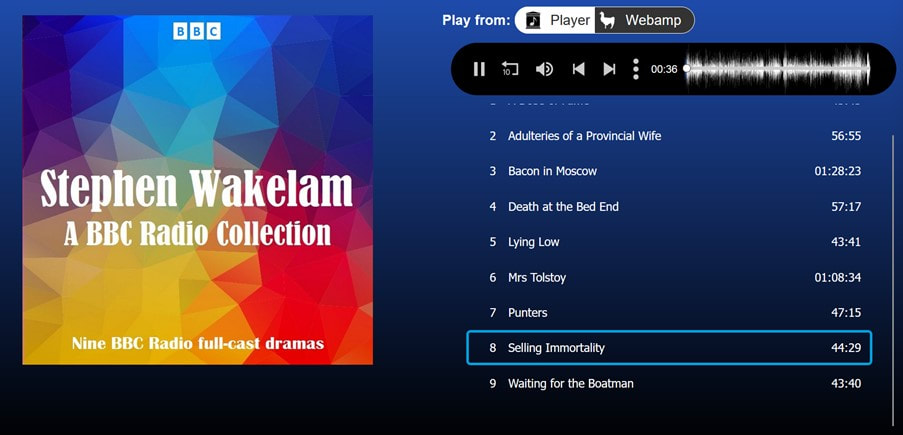
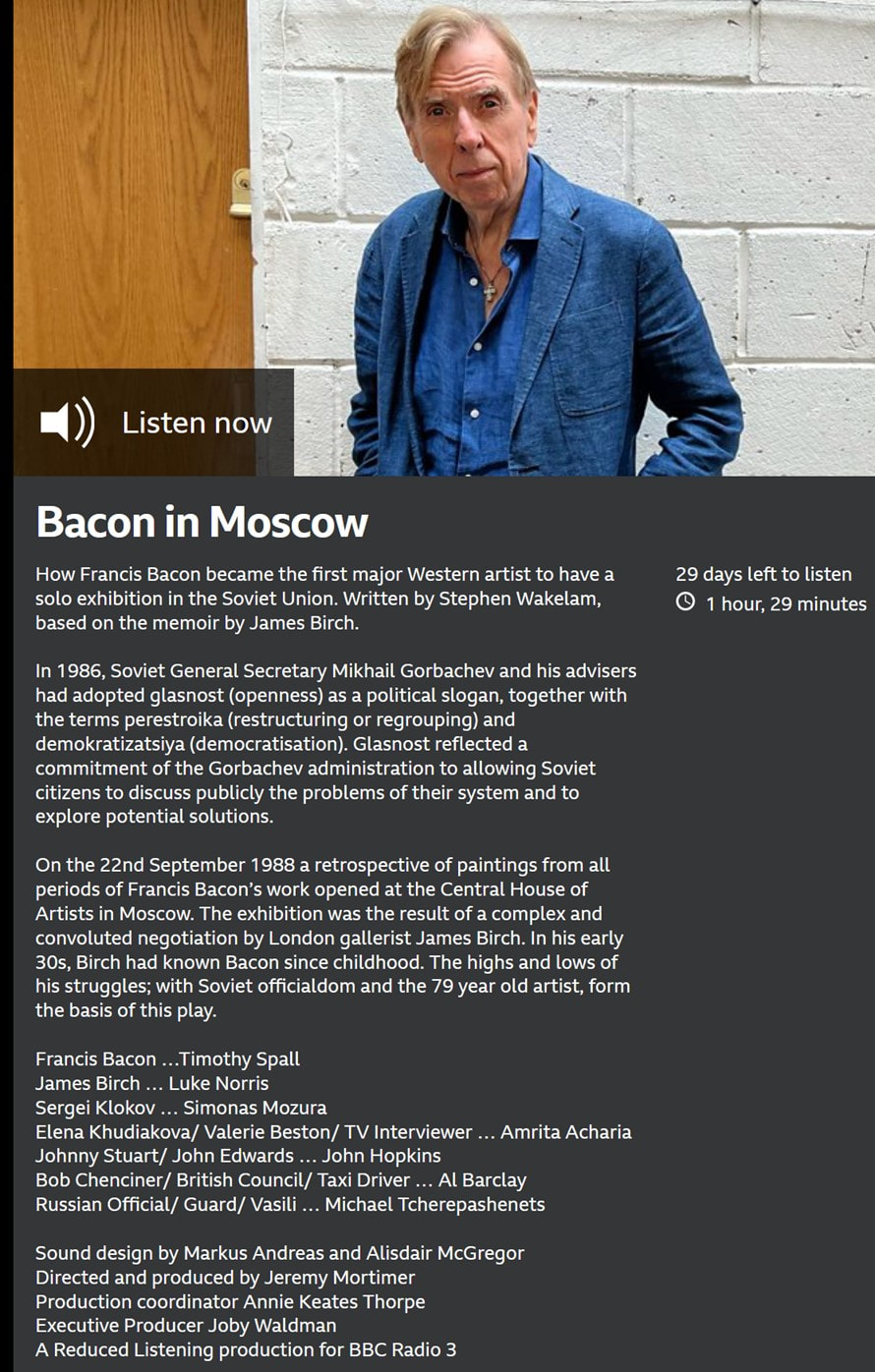
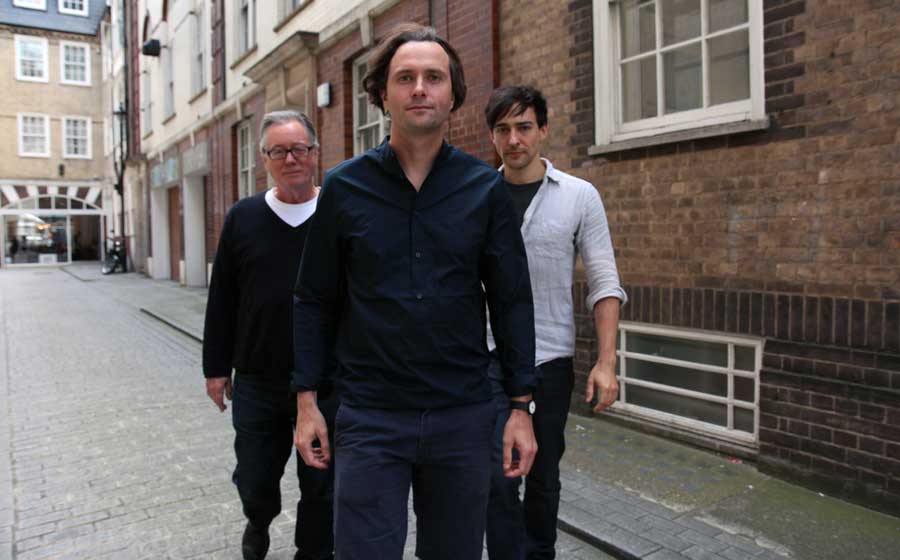
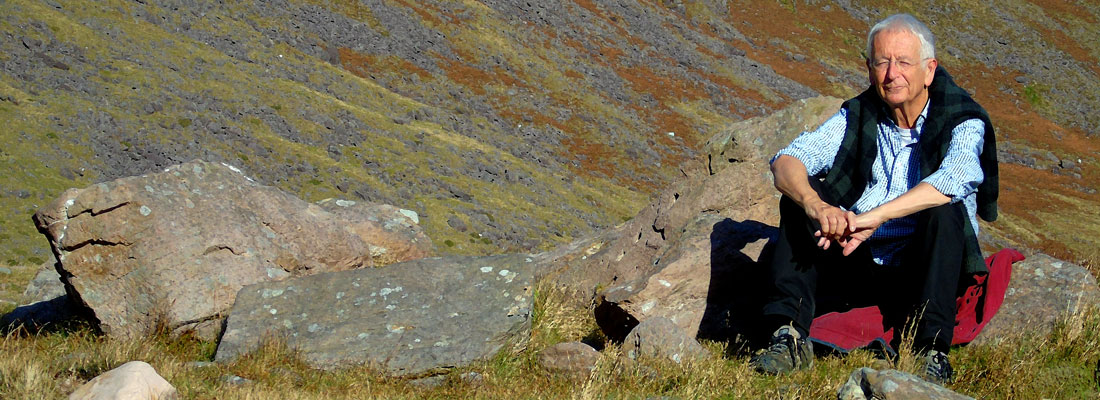
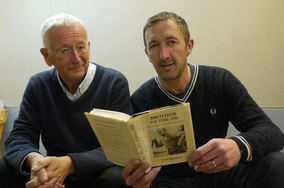
 RSS Feed
RSS Feed